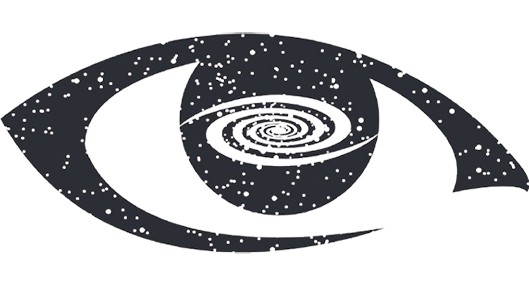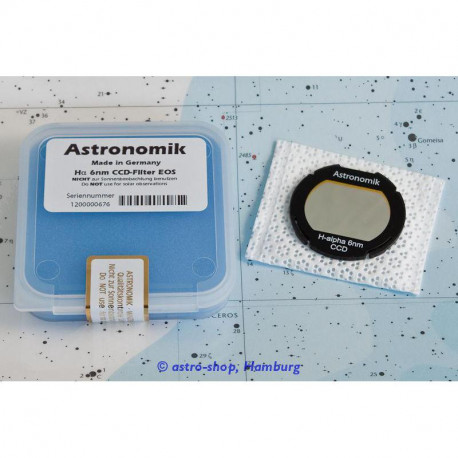No products
Prices are tax included
Astronomik H-alpha 12nm CCD Clip-Filter EOS APS-C
Astronomik APS-C Ha 12 nm
New product
Astronomik H-alpha 12nm CCD Clip-Filter EOS APS-C
This product is no longer in stock
More info
Astronomik H-alpha 12nm CCD Clip-Filter EOS APS-C
Astronomik H-alpha 12nm Filter
The Astronomik H-alpha filter is a narrow band filter for CCD photography. The filter lets the H-alpha light of emission nebulae pass and blocks nearly the whole remainder of the spectrum where the CCD is sensitive.
We have re-desgined all of our photographic filters. Since the end of 2008 we are shipping our new "Halo-Free" filters. read more...
The full width at half-maximum (FWHM) of 12nm is optimized for the use with common CCD cameras and allows the use of very fast optics. It should be noted that the filter has a transmission of up to 99%.
Another advantage of the 12nm filters is the availability of guiding stars for cameras with a built-in-autoguider (SBIG). If you use a very strong filter like our 6nm filter you often won’t find a usable guidestar.
The range of application extends from 1:2.8 to 1:15. Transmission losses and chromatic distortions, which arise with other filters, only occur with Astronomik filters when extremely bright aperture ratios of 1:2 and more come into play.
Main use
The Astronomik H-alpha-CCD (12nm version) increases the contrast between objects, in this case between the H-alpha emission line and the skyglow background. Our Astronomik H-alpha-CCD (12nm version) completely suppresses the emission lines of artificial lighting (mercury (Hg) and sodium (Na)) and skyglow.
Please note: In principle, all camera lenses can be used with the Clip-Filter - i.e. Canon EF lenses or camera lenses from other third party manufacturers such as Sigma, Tamron, Tokina, Walimex etc. However, the use of clip-filters with Canon EF-S lenses is NOT possible!
Specifications:
Capacity |
|
| Type | H-Alpha Filters |
| Coating of optical system | multiple |
| Frame | EOS-Clip |
General |
|
| Series | H-alpha 12nm |
Area of application |
|
| Visually useful | no |
| Useful for photographs | yes |
| Anti light-pollution | yes |
| Daylight and twilight observation | - |
| Mercury | - |
| Venus | - |
| Mars | - |
| Jupiter | - |
| Saturn | - |
| Uranus | - |
| Hydrogen nebulae | yes |
| Planetary nebulae | - |
| Supernova remains | - |
| Comets | - |
| Central stars | - |
| Twin stars | - |
| Galaxies and star clusters | - |




